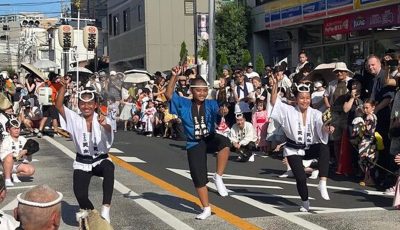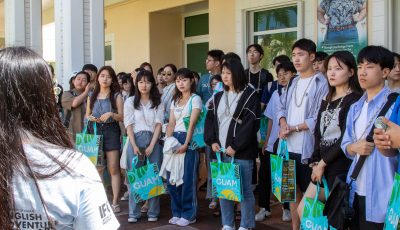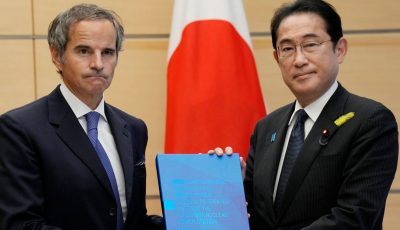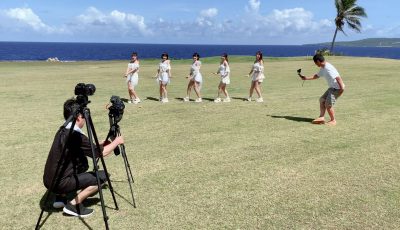Reducing the use of plastic bags for the sake of our future
Two months have passed since the Government of Japan made it mandatory to charge for plastic bags since July 1 of this year. This coincides with the Ministry of Environment taking the lead on a campaign to reduce the uses of plastic bags. The goal is to increase the percentage of people not requiring plastic bag per week, from 30% in March to 60% by December. But not all plastic bags will be charged. Plastic bags that meet certain criteria will be exempted from the charge: (1) Plastic bags with film thickness of 50 micrometers (to be reusable), (2) 100% biodegradable plastics, (3) or composed of 25% or more with biomass-based materials. Depending on the retail store and size, the once free plastic bags will now cost between 2 to 5 Japanese yen per bag.
But some environmental experts raised a concern that plastic bags make up only 2% of the overall issue of plastic pollution in Japan. At the same time, plastic bags are created by a chemical material known as polyethylene and this chemical is produced during petroleum processing, raising a concern that, regardless of limiting the pollution of plastic bags, the pollution will still continue. With the usage of plastic bags for convenience during our daily life, Japan is known to use roughly 30 billion plastic bags per year. Worldwide, the use of plastic bags is known to amount to 8 million tons per year, which is equivalent to 50,000 jumbo jet aircraft. There are also reports that there will be more trash in the ocean than fish by the year 2050.
We should be concerned about this serious matter of pollution that is continuing to spread across the world. Within plastic pollution, the plastic that’s causing the biggest issue is called “micro plastic” or MP. Plastic that is disposed near an environment such as a river will end up in the ocean and is broken into small pieces by waves and ultraviolet rays from the sun. Those broken down bits of plastic with a size of 5mm or less is known as MP and are not biodegradable. They will remain in the ocean semi-permanently and, in some cases, would be found in fish or marine birds. In some reports, MP have been seen in the Arctic Sea and the Antarctic Sea as well. During the G20 Osaka summit held in June, the government of Japan launched the “Osaka Blue Ocean Vision” to aim for zero pollution by plastics in the year 2050 and other countries have also agreed to partake in such efforts.
Now why did the government of Japan make it a requirement to impose a charge on the use of plastic bags? The Ministry of Environment explained that the purpose is to “change the lifestyle of people’s reliance on disposable plastic bags.” With such a statement, we have to ask ourselves whether plastic bags are really necessary in our daily life. The implementation of charging for plastic bags is an opportunity for us to rethink and change our daily habits. Unfortunately, Japan is not a leading country in this area, as more than 60 countries worldwide have implemented a ban on the use of disposable plastic bags. But with this “Let’s reduce the plastic bag” campaign, the use of plastic bags was originally set at a 60% reduction by December but at this rate, the usage may be reduced to over 75%. Will this implementation be the first step to even larger success in preventing pollution in the ocean? Rather than setting a much higher goal at the start, it is important to start small and to continue the trend to reduce the quantity of trash being discarded. One may think, “What effect will it have on the environment if I’m the only one doing it?” but the mindset and awareness of each individual to keep the environment clean is very important, even if that is a small step by bringing their own shopping bag or reusable water bottle.
I am fully aware of the current pandemic caused by COVID-19 and the result of having no tourists visiting these islands. In the Northern Mariana Islands where we live, the tourism industry is very important for our economy and the beautiful ocean is our treasure. Ocean pollution is something that we all must be aware of. To maintain and protect our beautiful nature, we should start thinking and putting into action things we can do. I see and respect the effort of some supermarkets in implementing the measure of having a “no plastic bags day” and some restaurant use only paper straw rather than a plastic straw. Even for myself, I bring my own shopping bag. Measures such as charging for plastic bags may cause some inconvenience, but I feel it is necessary to create a more sustainable lifestyle to protect our environment.
In the tennis court located within the American Memorial Park, there is a drawing of a turtle trying to swim toward the vast ocean and on the top left, these words are written: “Our Reef, Our Future.” I would like to spread this message to all of the people in the CNMI.
Ono Kazuhiko (Special to the Saipan Tribune)
Ono Kazuhiko is the Japanese consul and head of the Consular Office of Japan on Saipan.



























